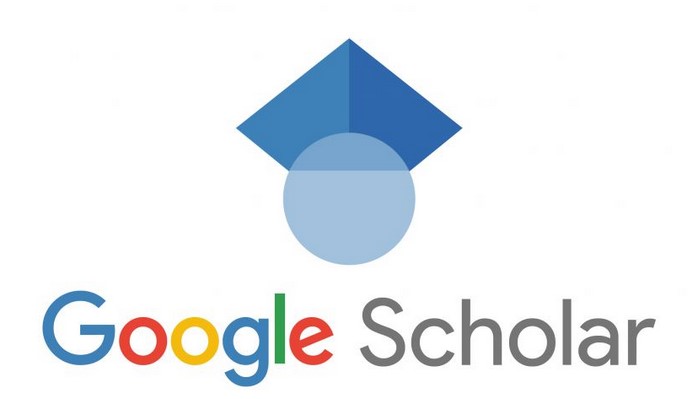Keywords
Budaya Lokal, Karakter Kebangsaan, Keer'ja Banyau
Document Type
Article
Abstract
Bangsa Indonesia pada saat ini sedang mengalami krisis identitas, dengan lunturnya nilai karakter kebangsaan. Penelitian ini bertujuan untuk memperoleh gambaran secara deskriptif tentang nilai-nilai yang terkandung dalam budaya lokal Kee'rja banyau yang terdapat pada masyarakat di Desa Sungai Deras. Metode penelitian menggunakan kualitatif dengan pendekatan studi kasus, pengumpulan data melalui observasi, wawancara, dokumentasi. Temuan penelitian menunjukkan bahwa budaya lokal yang disebut dengan istilah kee'rja banyau mengandung nilai-nilai kekeluargaan, keadilan, sukarela, tanggungjawab, sosialisasi dan persatuan dan kesatuan.
---------------------------------------------------------------------------
Nowadays Indonesia nation has undergone a critical identity seen from the deteriorate of its character values of nationality. This research aims to obtain the description of values found in the local culture of Kee'rja Banyau from the community of Desa Sungai Deras. The method of the research is qualitative method using case study approach. The data were collected through observation, interview, and documentation. The finding showed that the local culture so-called Kee'rja Banyau contained the values of familiarity, justice, sincerity, responsibility, socialization, and unity.
First Page
1
Last Page
11
Page Range
1-11
Issue
1
Volume
16
Digital Object Identifier (DOI)
10.21831/jc.v16i1.23325
Source
https://journal.uny.ac.id/index.php/civics/article/view/23325
Recommended Citation
Fusnika, F., & Tyas, D. K. (2019). Nilai budaya lokal Kee'rja Banyau sebagai pembentukan karakter kebangsaan. Jurnal Civics: Media Kajian Kewarganegaraan, 16(1), 1-11. https://doi.org/10.21831/jc.v16i1.23325
References
Aqib, Z. (2012). Pendidikan karakter di sekolah membangun karakter dan kepribadian anak. (Y. Widya, Ed.). Bandung.
Bazzini, D., Curtin, L., Joslin, S., Regan, S., & Martz, D. (2010). Do animated disney characters portray and promote the beauty-goodness stereotype? Journal of Applied Social Psychology, 40(10), 2687-2709. https://doi.org/10.1111/j.1559-1816.2010.00676.x
Beal, D. J., Cohen, R. R., Burke, M. J., & McLendon, C. L. (2003). Cohesion and performance in groups: A meta-analytic clarification of construct relations. Journal of Applied Psychology, 88(6), 989-1004. https://doi.org/10.1037/0021-9010.88.6.989
Beckwith, D. C. (2009). Values of protagonists in best pictures and blocbusters: Implications for marketing. Psychology & Marketing, 26(5), 445-469. https://doi.org/10.1002/mar
Carron, A. V, & Brawley, L. R. (2012). Cohesion: Conceptual and measurement issues. Small Group Research, 43(6), 726-743.
Cohen, T. R., & Morse, L. (2014). Moral character: What it is and what it does. Research in Organizational Behavior, 34, 43-61. https://doi.org/10.1016/j.riob.2014.08.003
Durkheim, E. (1964). The division of labour in society. New York: Free Press.
Effendi, T. N. (2013). Budaya gotong-royong masyarakat dalam perubahan sosial saat Ini. Jurnal Pemikiran Sosiologi, 2(1), 75-86.
Graham, J., Nosek, B. A., Haidt, J., Iyer, R., Koleva, S., & Ditto, P. H. (2011). Mapping the moral domain. Journal of Personality and Social Psychology, 101(2), 366-385. https://doi.org/10.1037/a0021847
Gray, C. B. (2011). Democracy where and where not.(Report). Journal of Social Sciences, 7(2), 284.
Greene, J. (2014). Moral tribes: Emotion, reason, and the gap between us and them. Penguin.
Haidt, J. (2007). The new synthesis in moral psychology. Science, 316(5827), 998-1002. https://doi.org/10.1126/science.1137651
Harahap, Z. H. (2017). Pendidikan karakter berbasis nilai moral dan nilai kebangsaan. Prosiding Seminar Nasional Tahunan Fakultas Ilmu Sosial Universitas Negeri Medan Tahun 2017, 1(1), 399-402.
Jamil, T. M. (2017). Pembangunan karakter kebangsaan pada masyarakat multikultural. Prosiding Seminar Nasional Tahunan Fakultas Ilmu Sosial Universitas Negeri Medan, 1(1), 403-407.
Janoff-Bulman, R., & Carnes, N. C. (2013). Surveying the moral landscape. Personality and Social Psychology Review, 17(3), 219-236. https://doi.org/10.1177/1088868313480274
Kartodijo, S. (1987). Gotong royong: Saling menolong dalam pembangunan masyarakat Indonesia. In N. . Callette & U. Kayam (Ed.), Kebudayaan dan pembangunan: Sebuah pendekatan terhadap antropologi terapan di Indonesia. Jakarta: Yayasan Obor Indonesia.
Krakowiak, K. M., & Tsay-Vogel, M. (2013). What makes characters' bad behaviors acceptable? The Effects of character motivation and outcome on perceptions, character liking, and moral disengagement. Mass Communication and Society, 16(2), 179-199. https://doi.org/10.1080/15205436.2012.690926
Kymlicka, W. (1995). Multicultural citizenship. A liberal theory of minority rights. Oxford: Oxford University Press. https://doi.org/10.1177/0090591702304001
Kymlicka, W., & Cohen-Almagor, R. (2000). Democracy and multiculturalism. In Challenges to Democracy: Essays in Honour and Memory of Isaiah Berlin (hal. 89-118). London: Ashgate Publishing.
Latif, Y. (2017). Kebangsaan Indonesia dalam pusaran globalisasi dan promordialisme. In Seminar Nasional PKn "Penguatan Spririt Kebangsaan di Tengah Tarikan Primordialisme dan Globalisasi" (hal. 121-131). Semarang: UNNES.
MartÃnez-MartÃ, M. L., & Ruch, W. (2017). Character strengths predict resilience over and above positive affect, self-efficacy, optimism, social support, self-esteem, and life satisfaction. Journal of Positive Psychology, 12(2), 110-119. https://doi.org/10.1080/17439760.2016.1163403
Osler, A., & Starkey, H. (2005). Changing citizenship. Democracy and inclusion in education. New York, NY: Open University Press. https://doi.org/10.1177/1746197906068125
Pagani, C. (2014). Diversity and social cohesion. Intercultural Education, 25(4), 300-311. https://doi.org/10.1080/14675986.2014.926158
Panjaitan, M. (2016). Peradaban gotong royong. Jakarta: Permata Aksara.
Saebani, B. A. (2012). Pengantar antropologi. Bandung: CV. Pustaka Setia.
Soekanto, S. (2009). Sosiologi Suatu Pengantar (Edisi Baru). Jakarta: Rajawali Pres.
Supriyoko, K. (2003). Sistem pendidikan nasional dan peran budaya dalam pembangunan berkelanjutan. In Seminar Pembangunan Hukum Nasional VIII. Denpasar.
Suyitno, I. (2015). Pendekatan budaya dalam pemahaman perilaku budaya etnik. In D. Agung (Ed.), Contribution of History for Social Science and Humanities. Fakultas Ilmu sosial Universitas Negeri Malang.
Wolbring, G. (2012). Citizenship Education through an Ability Expectation and "Ableism" Lens: The Challenge of Science and Technology and Disabled People. Education Sciences, 2(4), 150-164. https://doi.org/10.3390/educsci2030150
Yasunaga, M. (2014). Non-formal education as a means to meet learning needs of out-of-school children and adolescents.



